What this place is all about.
Notes on our weird & wonderful Velocity culture

We didn’t fully appreciate this when we started Velocity, but it turns out that a culture is a powerful and an important thing.
Together, and without really being super-conscious about it, we’ve all somehow created a really… interesting place to work.

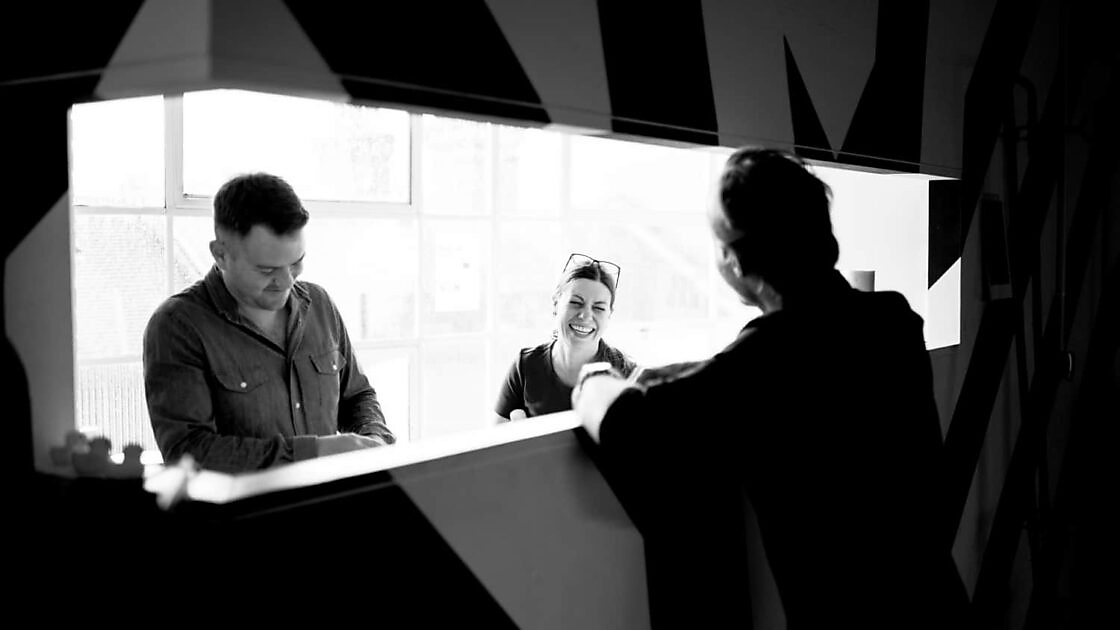
As we grow and welcome our strange new colleagues, it feels like a good time to try to capture this elusive thing called the Velocity culture.
This piece is all about what this place is all about.
Chapter 01
Why write this stuff down?
We’ve always had lots of reasons to resist writing down Velocity’s ‘values’ or ‘beliefs’:
-
We didn’t want to be Paternalistic.
To presume that a group of adults had to sign up to a common set of written values. (It’s not a fucking cult). -
We didn’t want to be embarrassing.
Falling into the wanky marketing speak that almost invariably characterizes these things. (We got over it). -
And we didn’t want to be obvious.
Saying the things that any good company would say (“People are our most important yadda-yadda.”).
But we’re growing fast.
Adding new people every month.
And we don’t want to take our culture for granted. To assume that a new hire will just soak it up by osmosis.
So this is an attempt to write down the as-yet-unwritten and figure out the puzzling process that turns:
a haggle of account people
a grump of designers
a scrum of developers
a collective noun of writers
into a living, growing, somehow thriving company.
No but why?
Partly to try to preserve this weird thing called the Velocity culture.
To defend it against the many pressures that can erode or warp it; to preserve what’s important as we grow, while letting go of things that are okay to let go of.
Partly to help welcome new people.
Our earlist settlers have lived the V culture for years – in fact, they created it. But out newest joiners haven’t lived it yet. They’re left to pick it up for themselves.
But mainly to celebrate it.
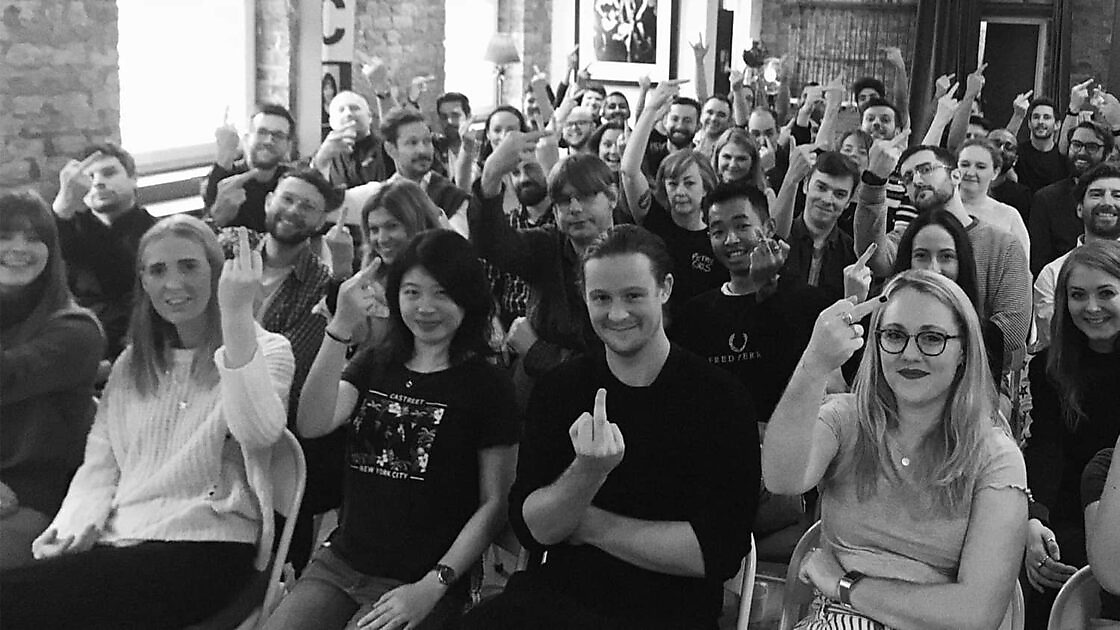
We think we’re doing something unique here. Something meaningful.
Not every day. Some days suck. Some days we let ourselves down, betraying the values we’re so proud of. Some days we cut corners or snipe about a colleague or leave our tea bags in the sink for Sean to photograph.


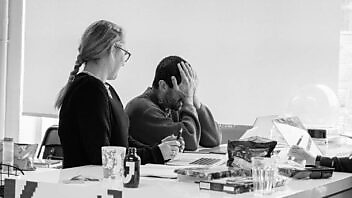
But the important thing is that we’re trying to do something special. To build a company that’s worthy of all the smart, talented, fun, funny, committed people we’ve managed to attract.
Each of us is giving something precious to this place. We’re committing some of the best years of our careers. We’re giving our time, our energy and our best game. We’re dragging our asses in on bad days and skipping up those steps two at a time on good ones.
It’s important to know that the thing we’re putting our whole selves into is worthy of that investment. That it’s not just a wish.
Not every company is the same.A culture is a real thing.A good one is a special thing, worth taking care of.
Let’s take care of ours.
A quiet word about hypocrisy
Writing this stuff down is dangerous.
It opens us up to accusations of hypocrisy every time we fail to practice what we preach.
But we’re not hypocrites, we’re humans.
The things we’re talking about here happen when we’re our best selves. But most of us are our best selves, what, maybe 30% of the time, if we’re lucky?
So, yes, we’ll fall short of the ideas and ideals captured here.
A lot.
That’s called failing.
But failure doesn’t mean we’ve abandoned our principles.
Just that we fell short this time.
It’s important to forgive ourselves and each other when we aren’t living up to our values.
But it’s just as important to remind ourselves about those values; to keep each other honest without being preachy or scolding.
Maybe some weeks we’ll hit our ‘best selves’ target, say, 70% of the time.
That’d be a great week.
Chapter 02
The Velocity experiment
It’s easy to think of a business as something someone designs and builds for other people to come in and inhabit.
Velocity never happened that way.
Velocity is a continuous experiment. We’re figuring it out as we go. Trying things that feel right. Seeing if they work. Pivoting if they don’t.
By building a marketing agency today, we’re pioneering all sorts of things at once.
Inventing what an agency should be and do.
Inventing what marketing and content marketing means for B2B companies.
Inventing processes to deliver the services we decide to offer.
Bringing in people we think will be right for each discipline.
Taking our best guesses and seeing what happens.
All this is more than just the result of doing something that hasn’t been done before.
It’s also a critical part of who we are.
Knowing exactly where you’re going is reassuring.
Not knowing is exciting.
Following a proven template is safe. Making one up is interesting.
Doing what we’re certain will work is validating. Trying something we hope might work is scary as heck.
Doing exciting, interesting, scary things is our idea of fun.
So is being part of a small scale but somehow grand experiment.
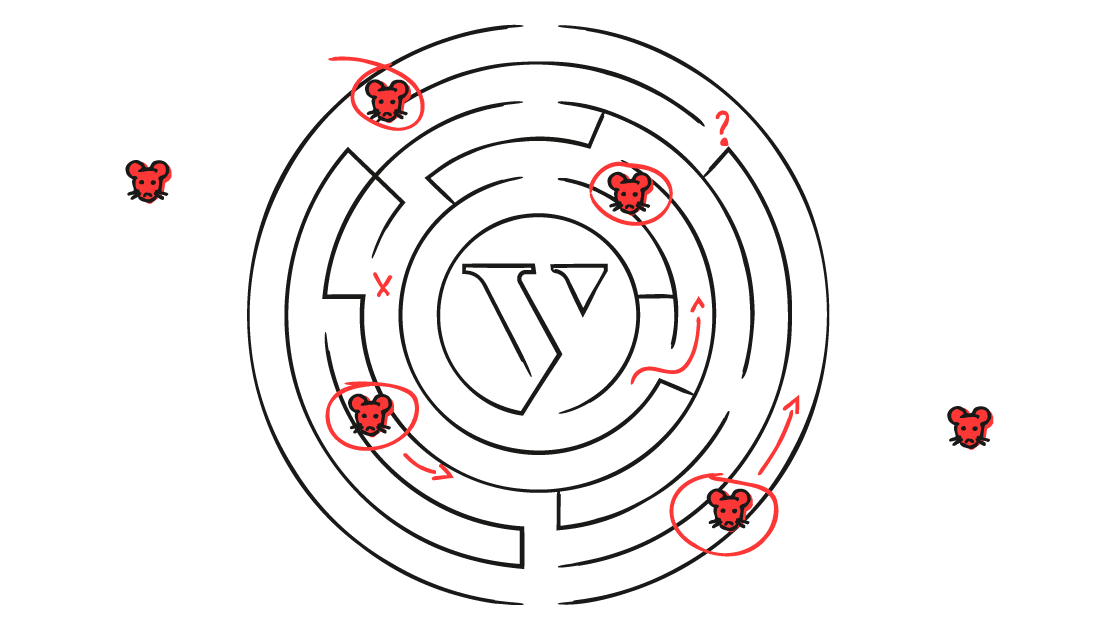
Putting the ‘up’ in ‘fuck-up’
Every single thing we do is an opportunity to learn.
Every project for every client.
Every new strategy tactic or format.
Every piece of content.
Every new process.
When that’s true, even screwing up has an upside.
When learning is one of your main goals, total failure is impossible.
(That partial failure can be a bitch, though).
Here’s to the comfort zone
The comfort zone has an undeserved bad reputation. As if it’s just a place for lazy people. But it’s nice to have a comfort zone.
It’s necessary.
Being in a place where we know exactly what we’re doing gives us confidence. And we can take that confidence with us when we leave the comfort zone and explore places we haven’t been before. If we get lost or scared, or if we fail, we know we can always go back to the safe place. The place where we know what we’re doing.
We’re glad to have a comfort zone and we’re happy to make it bigger and comfier all the time.
To buy new sofas and rugs for it.
To stock the fridge.
We love our comfort zone.
We just don’t want to live there all the time.
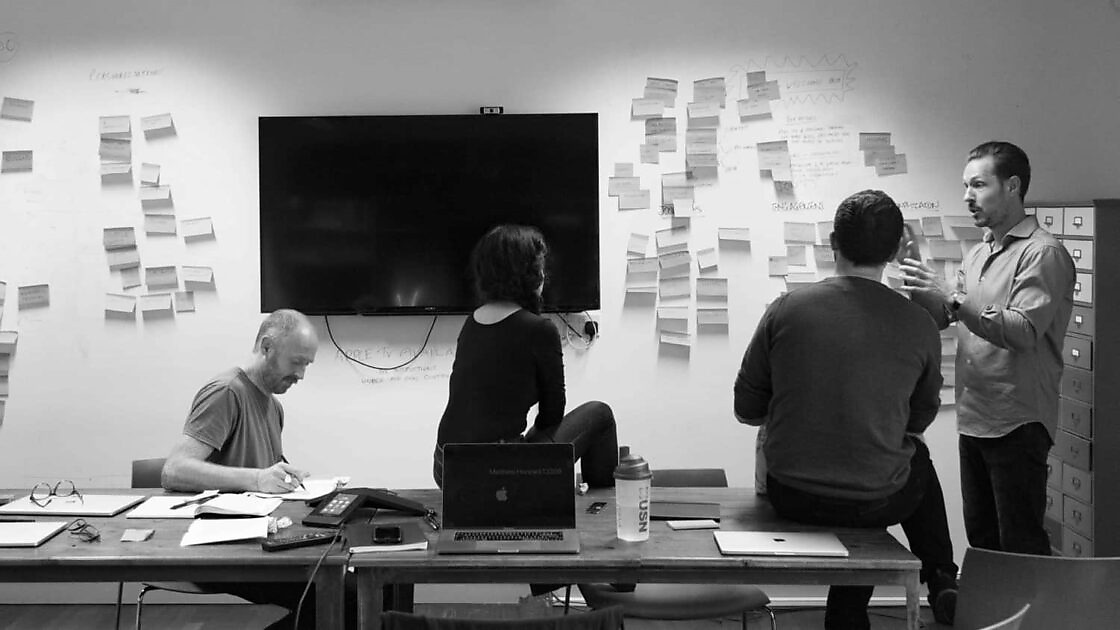
The point of all this is sitting next to you.
We’re a diverse bunch of people.
We’re motivated by different things.
Some of us are here to change marketing.
For others, it’s all about creative work.
About making ideas come to life.
Others are in it for the learning.
The growth.
But, whatever brought us here, there’s a single, simple thing that keeps us here.
That keeps us giving our whole selves to this work.
That keeps us at the desk when we should probably get on home.
That drags us back to version 8 when version 4 was just fine.
The thing that powers this place is quite simple:
It’s not our clients.
It’s not money.
It’s not awards.
It’s each other.
Her, him, them and you.
Turns out, that’s everything.
Chapter 03
The elements of our culture
Our culture isn’t just a by-product of a group of people doing hard things.
Our culture is a critical—if sometimes unconscious—guide to every decision we make.
The choices we make reflect who we are.
At Velocity, we can cluster these choices into a few big buckets:
-
The people we hire.
-
The way we manage things.
-
The clients we work for.
-
How we serve those clients.
-
How we treat our suppliers.
-
The work we do.
-
The business we run.
Let’s drill down a bit into each…
03.1 • The people we hire
Thankfully, there’s no one ‘Velocity type’
We’re a diverse bunch of oddballsand misfits. But when you look around you can’t help but notice some important similarities.
Without exception, the people who make it over the hiring bar and who stay around for a while are all:
- Smart
It may not be rocket science, but marketingnew technology to skeptical people takes real intelligence.Smart folks do well here. - Curious
People who enjoy figuring out how things work (software, businesses, markets, content, websites) tend to like it here. The incurious don’t last very long. - Kind
We hire nice people who know it’s important to treat people with respect. Assholes are free to apply but they don’t get far. - Talented
Everyone here has a super-power. Our collective job is to help each of us find and release that super-power. - Resilient
This can be frustrating, exasperating, ego-bruising work. People who bounce back quickly do well here. People who take setbacks personally tend to struggle (We’re getting better at helping on this but have a long way to go). - With uncommon integrity
We take the high road even when the low road is incredibly tempting. There’s often a price for that and we pay it happily.
If you’re in the room, these things describe you.
And the person next to you.
And the person cleaning up after that bloody dog.
Not a bad bunch of attributes for the people you spend most of your day with.


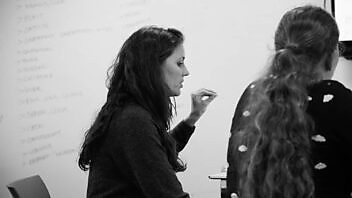
03.2 • How we manage things
When you hire smart, curious, kind, talented and resilient people with integrity, you don’t have to micro-manage them.
Velocity managers vary as much as the people we manage but our overall approach is pretty consistent:
-
We foster autonomy
We don’t exactly throw people into the deep end but if they happen to paddle over there, we tend to let them figure out where the water wings are kept.Sometimes, we may go too far in this direction, not noticing when someone is struggling.
Other times, (often when some shit hits some fan somewhere) we may grip the reins a bit too tightly.
But the target is to help people become autonomous relatively quickly—then let them get on with it.
We give people as much responsibility as they’re ready for, then maybe a bit more.
This approach depends on people asking for help when they need it. It also calls for sensitive, empathetic management.
-
We’re not big on blame.
It’s hard to create a blame culture when the company founders screw up more than anyone else.Making mistakes is an everyday thing around here.
It’s no big deal.As long as we learn from them.
This approach depends on each of us being okay with putting our hands up and saying, “Oops”. Then we can work together to fix the problem.
It also depends on airing our mutual mistakes together, then capturing and sharing the lessons.
-
We try hard to recognise great work.
We all know how it feels to do something above-and-beyond…that nobody notices.
And we all know what it feels like to get a ‘nice one’ or a shout-out on Slack or a spot bonus or a round of applause at a Show & Tell Lunch.That’s why we want to be a place that recognises effort, craft, achievement, growth, kindness and talent.
This one is hard.
When you’re really, really busy, it’s really, really easy not to notice when a colleague has gone the extra kilometer.
And when a person hits it out of the park time after time, it’s all too easy to start to take that performance for granted. To take that person for granted.
We hate being taken for granted and hate even more when we do that to our friends and colleagues.We need to help each other spot and recognise when someone’s done something special, put in extra time and energy, overcome a challenge or upped their game. The more specific the better.
Recognising excellence can be awkward.
Our job is to get over that awkwardness and give thanks and credit where and when it’s due. And to apologise when we fail.This is important.
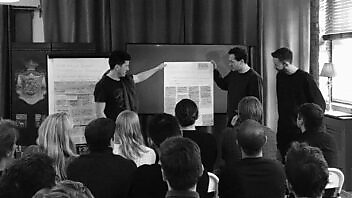


03.3 • The clients we work for
All of our best work can be tracked back to a great agency-client relationship.
And all of our worst can be tracked back to a relationship that we’ve allowed to get out of sync.
So far, we’ve been lucky: fantastic clients have tended to come to us instead of us chasing them.
That means we can choose which clients to work with and which to avoid—one of the most agency-defining decisions we make.
These are the kinds of clients we work for:
- Clients who value what we value
We do great work with clients who have the same ideas about what makes great marketing. Our own marketing tends to attract these like-minded people, so we have a good hit-rate here. - Confident, ambitious clients with some power
We need the people on the other side of the table to want to do great things and to be able to do them. People who have some authority in their own companies, so they can drive change. - Clients with interesting problems
We love learning new things. New tech, new markets and new marketing problems. Bring it on. - Clients who see us as partners
We’re good at what we do. Our clients hire us to bring these chops to the table; to give them our best advice and our best work. Clients who prefer an S&M relationship are not Velocity clients.
Conversely, we’re not very good with bullies, dullards, politicians and fearful types.
Life’s too short.
Bottom line:
We’re lucky to have such wonderful clients. We never want to be that agency who’s constantly complaining about the people paying the bills.
That’s bullshit.
Rewarding our clients’ faith in us.
Picking an agency is a high-risk decision. When a client team picks an agency, they’re sticking their necks out.
And when they pick an agency like Velocity—an agency that swears and cries and challenges everything and constantly pushes back—they’re really, really sticking their necks out.
There are WAY safer choices out there.
The people who choose us do it because what we do resonates with them. They’re confident marketers who want to do great things. These are our people.
When one finds us, it’s a precious thing.
We need to reward their decision.
To prove we’re worthy of their trust.
To make them delighted they stuck their necks out and chose us.
We owe them that.
03.4 • How we serve clients
We’re here to help our clients succeed:
As individuals
We love making our clients heroes in their companies. Our most-coveted metric is getting a client promoted.
As companies
We love seeing that our work has moved the right dials for our clients. When we smash our targets.
Sometimes the individual client wants things that won’t be good for his or her company. It’s our job to point that out (but it doesn’t always work).
Things we owe our clients
- Our honest opinions
Not just the ones they want to hear - Keeping our promises
Or giving fair warning when we can’t - Flexibility
To work the way they need to work - Listening hard
With an open mind - Working hard
Not cutting corners - Telling the truth
Always; no exceptions
- Making good
When we screw up - Staying open-minded
We don’t know everything - Not settling for ‘okay’
‘Okay’ is embarrassing - Total transparency
No secrets, no hidden mark-ups - Playing nicely
With other agencies—we’re not greedy

On firing clients
We’re enormously grateful for our clients.
We will go through thick and thin with them.
We’ll suffer through bad times, when everything feels out of sync.
We’ll work hard to get back a strong working relationship.
We’ll help them grapple with their ornery stakeholders.
Only when we’ve failed repeatedly—when we see no possibility of recovering the things we need to be effective for our clients—will we end the relationship.
We never do this lightly. We never enjoy it. But sometimes it’s the right thing.
03.5 • How we treat our suppliers
Velocity is made greater by the people we bring in to help us: the designers, writers, animators, proofreaders, project managers, photographers, illustrators and video production companies who expand our capabilities and bandwidth.
We’re lucky we can work with so many talented people.
We want to be among their very best clients.
(And it’s not uncommon for some of them to join us full time).
Things we owe our suppliers
- A clear brief
Just as we would want from our own clients - Fair fees
We don’t nickel and dime people - Fair scheduling
Not cancelling on short notice - Fast payment
Not 90-day jerk-around - Owning our own mistakes
Not making them pay for our (or our clients’) dysfunction
- Frank, open communication
No surprises - Freedom to bring their best
Not tying their hands or doing their jobs - A good work environment
Not a hard bench and a shitty old PC - Respect
As we insist on for ourselves
If a supplier lets us down or isn’t right for us, we can stop using them. But while we are using them, they’re one of us.
03.6 • The work we do
We do lots of different things for our clients.
But our work always follows a few simple principles:
We market to others as we’d want to be marketed to ourselves.
The marketing we all grew up with is the asshole at the party.
The boor. The braggart. The idiot who thinks he’s a genius.
It doesn’t have to be like that.
A business is a worthy thing to start and grow.
And marketing is a hugely important part of that.
It ought to be possible to do marketing without being an asshole.
That kind of marketing ought to work even better.
We create intelligent marketing that earns the attention of its audience, then rewards that attention.
Marketing that delivers value to the audience not just to the client.
We’re here to make marketing less stupid.
A few principles:
- We help our clients take a stand.
To have a point of view on the issues their prospects care most about. We hate the middle of the road. - We write as we speak.
With well-structured stories told in a strong, clear voice. - Our design serves the story—and the user.
User-centric design starts with the audience and works backwards. We don’t do frilly, fiddly, show-offy design for design’s sake. We design for impact and experience. - We code for beauty.
Our awesome developers are turned on by elegant, streamlined code that performs well on every device. We can show anyone the code behind our websites or digital content—and the processes that created them—and be proud.
-
We’re all about performance.
Our work doesn’t exist for its own sake. We need to see it work. We love designing programs, nurture flows, data integrations and performance reports that drive revenue—and can prove it.Nothing feels better, for a strategist, a planner, a creative person, a project manager, an account person – anyone – than saying: “We aimed for that over there and we bloody nailed it.
- We’re always looking fornew ways to tell stories.
Nothing stands still. Audiences, markets, technologies, media…they’re all changing all the time. We love finding new ways to tell stories and new ways to get those stories to market. We’re geeks that way. - We reject the idea of a B2B ceiling.
There is absolutely no reason that B2B can’t be every bit as fun, exciting, challenging, moving and sexy as consumer marketing. If ours isn’t, it’s our fault.
03.7 • How we run our business
We run a tight ship, keeping a close eye on the metrics that matter:
Revenue growth
Profit margins
Cash flow
To succeed, we depend on our fantastic finance, operations and account management teams to develop and manage critical processes like forecasting, billing, collecting and resourcing.
It’s a pain in the arse but without it, we would sink like thousands of badly-run agencies that have gone before.
We pay attention to our business to earn three freedoms:
- Freedom to do better work
A business under financial pressure has to watch every hour and every dollar. A healthy business means we can do the work as it should be done. - Freedom to choose our clients
A weak business has to take whatever work comes along. A strong business can choose clients we can really help. - Freedom to make mistakes
One or two mistakes can really hurt a vulnerable business. A secure business can ride the mistakes and downturns without panic.
Keeping the business strong is everybody’s job.
This isn’t something Finance does.
This is something everyone does:
Fixing shitty processes that siphon away profits.
Spending money like it’s our own.
Spotting and exposing needless inefficiencies.
Looking for new opportunities with our clients.
Seeing changes in our clients that might impact revenue.
All of this makes a huge difference to our business.
Why we like growth.
We don’t just like growth because it makes us feel successful.
We like growth because it:
- Creates new opportunities for personal and career growth
- Generates bigger, better, more interesting projects
- Fuels a positive, fun, energetic atmosphere
And because it makes us feel successful.
(Let’s face it, stagnation sucks.)
Chapter 04
Things we’ve learned along the way
- Giving a shit is infinitely more fun than not giving a shit.
This is our work. Work matters. - Great work can only come from great client relationships.
Everything grows from this soil. - We’ve got a lot to learn.
Someone out there is better than us at each thing we do. - We’re not for everyone.
And that’s okay. - The world doesn’t owe us a living.
We earn our fees by delivering things that clients value.
- What worked in February may not work in October.
We have to listen hard and keep changing. - Sometimes good folks move on.
And sometimes they come back. - Fun is the best guide.
If we’re enjoying it, it’s probably the right thing. - Ten engaged people can run circles around fifty disengaged ones.
How we feel about our work determines its quality. - The most difficult conversations are the most important.
Hiding from them will only come back and bite us in the arse.
Good days and bad days.
All these high-falutin’ values don’t take away some basic realities.
This is work.
We’ll all have good days and bad days.
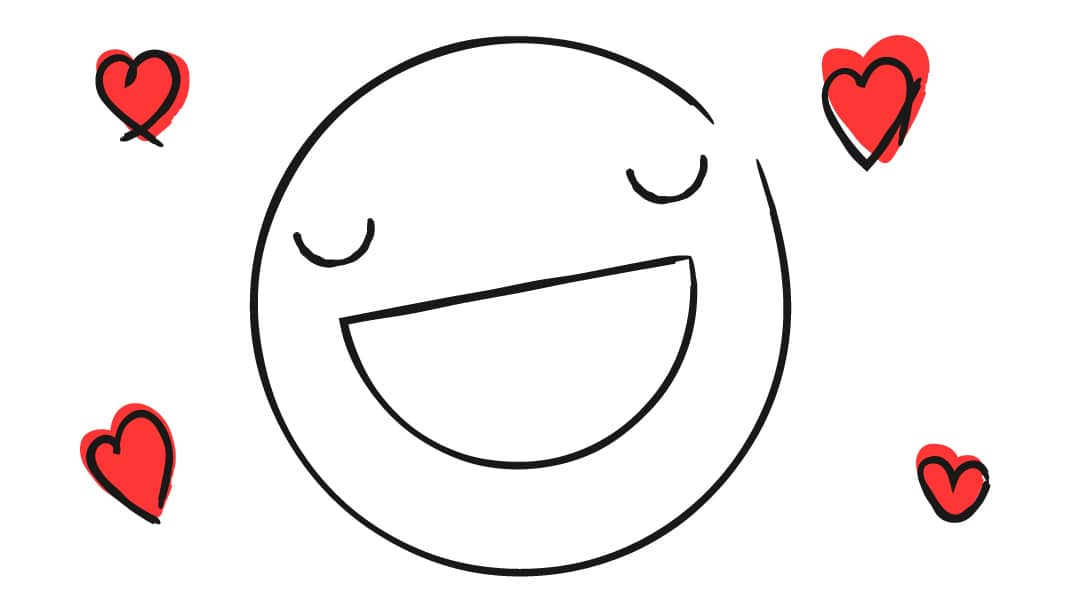
On a good day,
Velocity is an awesome place.
We’re firing on all cylinders.
We see just how amazing our colleagues are.
We love our clients.
We’re proud of our work.
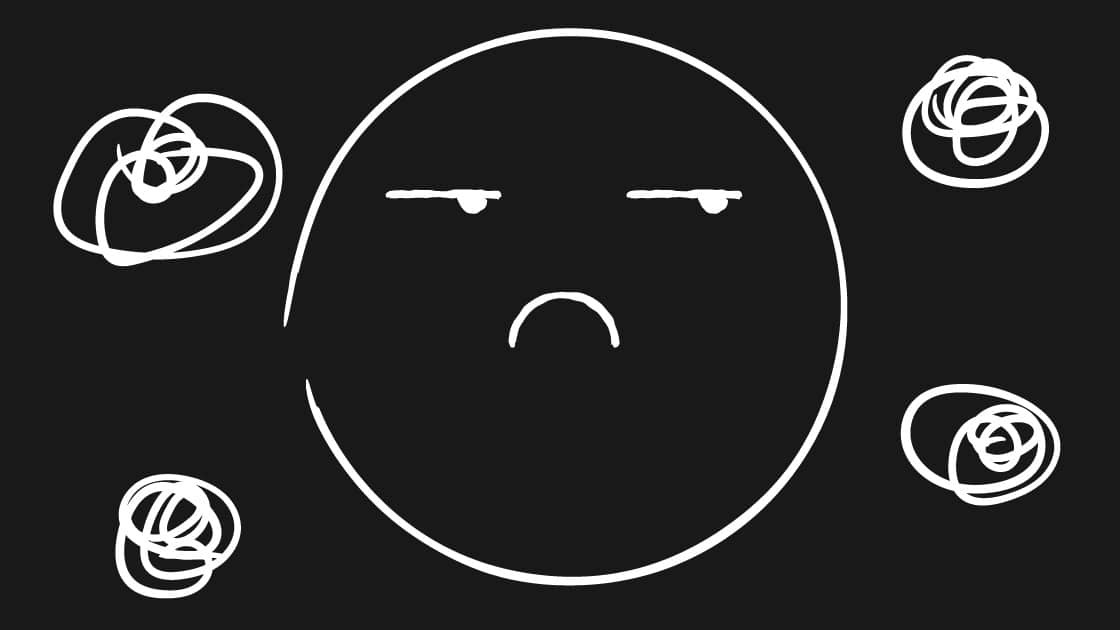
On a bad day,
This place sucks.
Nothing is easy.
Our colleagues let us down.
Our clients drive us crazy.
The work feels mediocre.
This is hard work.
There will always be bad days.
The key is to not over-react to them.
To not let them undermine all the good things.
To not let them turn into bad weeks and months.
This is reality.
Trying to create more good days than bad days.
On humility.
We have not arrived anywhere yet.
There are many, many successful agencies in the world.
There are far bigger ones.
More profitable ones.
Ones that are growing faster.
Ones that have won more awards and done better work.
But we’ve all created something to be proud of here.
Some of the best people in the industry want to work here (and do).
Some of the most exciting companies want to work with us.
Other agencies admire what we’re doing.
Let’s be aware of how that happened and try to keep the good mojo working.
But let’s not let things go to our heads.
There are lots of amazing agencies out there.
We have a lot to learn.
04.1 • Seven things that turned out to be harder than we thought.
- Firing clients.
Sounds fun. Isn’t. - Listening hard.
No, really listening. - Getting processes and tech right.
It’s often about stumbling towards the least worst option. - Making people feel as valued as they are.
Not taking our great people for granted.
- Resourcing.
Making a plan when unknowns out-number knowns, three to one. - Breaking free of inertia.
Trading the comfort of things we know we’re good at for the anxiety of things we’re not yet good at. - Letting down clients.
When a client is really angry or disappointed in us—and they’re right. That’s the worst feeling.
04.2 • Things that were easier than we thought
- Having that difficult conversation.
Scary as it is, people appreciate total candour, delivered with kindness. - Being ourselves at work.
Instead of creating a character and trying to inhabit it. - Saying no.
Turns out you get better at it with practice.
- Bigging up a colleague.
Awkward till you get the hang of it. - Expressing gratitude to our clients.
Turns out they’re people too. - Admitting when we got it wrong.
(Everyone knew anyway).
Chapter 05
Next
Velocity has had an amazing run.
So far, we’ve grown every year.
When that happens, it’s easy to get distorted ideas about things like how good we are and how easy this stuff is.
But the next five years will be challenging ones.
We want to grow fast in a maturing market.
Global pandemics happen.
We can’t grow simply by ‘scaling up’ the things we’re doing today.
We need to get good at new things and let go of some old ones.
Inevitably, we’ll make some painful mistakes.
We’ll find ourselves in some new and exciting places with clients and colleagues we haven’t met yet.
But we’re also sure to lose some good clients and some good people.
We’ll have some setbacks and some bad quarters.
Growth, change, mistakes, failures, setbacks, lockdowns… these are the things that test an agency’s culture.
How we handle them will tell us who we really are.
Whether we’re the kind of culture that cracks under pressure, loses its mojo and falls apart when things get tough.
Or the kind of culture that stays focused, learns fast, pivots, forgives, re-sets and grows stronger.
We’re completely convinced that our culture is the second kind.
That we can (and will) rise to the challenges ahead of us as we’ve risen to the ones behind us.
But that doesn’t happen by itself.
Resilience is not a default setting, it’s hard work.
With that in mind, this document is like a promise to each other.
A promise to recognise the nature and value of our shared experiment.
The ideas captured here are an attempt to figure out who we are.
It’s one way to preserve our culture through the peaks and troughs of agency life.
The roller coaster continues.
Let’s fucking
enjoy it.

Hey look: a teeny-tiny cookie request. Would you mind? It’d help us out. Click here to read our privacy policy to see why. Or hit “customize” if you’re fancy like that.
This site uses cookies
Some of these cookies are essential, while others help us to improve your experience by providing insights into how the site is being used.
For more detailed information on the cookies we use, please check our privacy policy.
Necessary Cookies
Necessary cookies enable core functionality. The website cannot function properly without these cookies, and can only be disabled by changing your browser preferences.
Analytical Cookies
Analytical cookies help us to improve our website by collecting and reporting information on its usage.
Advertising Cookies
Avertising cookies help us to understand if you visited our site after seeing or clicking an online advert.
Personalization Cookies
Personanlization cookies help us to provide you with a personalized browsing experience.
Comments
Bob Apollo Inflexion-Point November 10th, 2020
I’m reminded of a number of the things Simon Sinek said in “Start With Why”, but most particularly “People don’t buy what you do; they buy why you do it” and “Great companies don’t hire skilled people and motivate them, they hire already motivated people and inspire them”.
Way to go, Velocity!
Doug Kessler November 10th, 2020
Thanks, Bob! Love Sinek on this stuff. I guess that means I’m not a Sinek Cynic. {Dad-joke emoji here}
Bill Maslen The Word Gym Ltd. November 10th, 2020
Love it! Especially the bits about being honest with clients and honest with each other. Oh, and honest with suppliers (all too frequently underrated). Also the bit about 10 engaged people running circles around 50 disengaged people. And the bit about building creative, mutually reinforcing relationships with clients.
All, in our 30-year experience, rock-solid principles for satisfying, challenging work.
Nice!
Doug Kessler November 10th, 2020
Thanks, Bill! Much appreciated. I was kind of worried about writing this down at all much less sharing it, but I’m glad we did.
Chris Simply Great Copy November 11th, 2020
Nice.
I can agree with most of this.
My only addition after being in this business for quite a few years – are you able to ask the right type of questions? Sometimes questions about the client and the team they have around them to deliver your solution.
This is always the hardest part for me.
Warmest regards
Chris
Doug Kessler November 11th, 2020
Thanks, Chris — and nice one. Maybe you can know a business by the questions it asks.
Nick Ashmore ResponseTap November 11th, 2020
This is the best piece I’ve read on the importance of creating and managing your culture. Especially love the idea of ‘this is us on our best day’ and being allowed to not always reach the standard every time.
Doug Kessler November 11th, 2020
Thanks, Nick! Yeah, that was a real insight for me. That you’re not a hypocrite just because you struggle to live your ideals every day.
A bit of self-forgiveness can go a long way!
Jed Mole Acxiom (IPG) November 11th, 2020
A smart person said to me ‘values don’t count until they cost you something’. The idea being, they’re easy to say, harder to live when the right choice is the hard choice. In my experience, you guys do this. I’ve seen and felt it. This is a great piece, reflects V and, as is often the case, inspires many. Thank you
Doug Kessler November 11th, 2020
Thanks, Jed! Love that concept of the cost of values. I do think we’ve paid some prices for ours — and I’m really, really glad we did. Thanks again.
Justin Blackman Pretty Fly Copywriting November 11th, 2020
Holy shit. This makes me want to dust off my resume and apply.
Doug Kessler November 11th, 2020
Thanks!
We like a bit of dust on a CV. Also coffee stains.
Patricia Beks Tech to Market November 12th, 2020
I had to stop reading. Because it made me feel jealous next level. What an amazing piece of content and spot-on description. Can we steal it from you to grab our similar company culture? Absolutely loved it! Big compliments.
Doug Kessler November 30th, 2020
Thanks! Steal away (we surely did).
Amanda Russell Brado November 17th, 2020
I’ve loved you guys since Crap. I just looked it up, and that was seven years (and one job) ago. Congrats on being the kind of company worth reading and following for this long — that takes a lot of effort, honesty, hard work, and attitude.
Doug Kessler November 30th, 2020
Thanks, Amanda! A lot of crap has flowed under the bridge since then…
Kacem Jlidi Meem Communications November 23rd, 2020
Not sure what I’m feeling right now. I was reading this out loud and almost cried at one point. I so so so want to be part of this, but am I worthy?
Doug Kessler November 30th, 2020
Thank you! (Send in a CV — I’m not worthy either and I’ve managed to hang in here).
Lora Kratchounova Scratch Marketing + Media November 23rd, 2020
Are you hiring???:) Everything you said rings 150% true. Thank you for sharing this with such honestly – much appreciated!
Doug Kessler November 30th, 2020
You’re hired! (What do you do?).
As it happens, we are (cautiously given COVID) hiring.
Kristina Gren Firstsource November 26th, 2020
Seeing all those faces flipping the bid to camera brought a warm, reminiscent tear to my eye. Glad I got to be part of this experiment. You guys have some lucky “lab-rats” 🙂 and once the p-word is over, I’ll come find you in the Red Cow.
Doug Kessler November 30th, 2020
Hey Kristina! Thanks — promise you’ll stop by when there’s a ‘by’ to stop… by.
Julie Newton Cucchi 98pt6 December 8th, 2020
Oh man. So good. So fun to read. (As if David Ogilvy and Billy Bob Thornton had a love child. Who wrote culture documents. ) And since it’s obvious you’ve really found your voice, it’s no surprise you’ve been able to define an authentic culture. (Also, if you can’t not see David and Billy Bob now, you should know that David is clearly the bottom. Duh.)
Well done, Doug.
Doug Kessler December 15th, 2020
Hah! Love that Julie. Working hard to get the image out of my head. Failing. Send new image.
Todd De Rosa WK December 17th, 2020
LOVE IT – IT IS THAT SIMPLE. SOLID, TRUE, SIMPLE AND HITS HOME. Alas HR managers will dismiss! One thing I think you should consider adding to the Elements of Culture.. It says a lot about a company and to its people – Not only who they hire but who they do not fire! This says even more as mistakes are made but if you will own up and correct……. The cost of hiring and asshole – great book
Doug Kessler January 8th, 2021
Thanks, Todd — excellent point about who, how, when to fire. Definitely a big part of culture.
Oscar Galvin unu January 4th, 2021
big fan of your opening on why write this stuff down? so rarely does one find a employer branding page that doesn’t leave the reader cynical. consider me inspired!
Doug Kessler January 8th, 2021
Thanks, Oscar! Your being inspired inspires us!
Eivind January 12th, 2021
I wish other companies and organisations could have the same values and outlook on work as you. I’m blown away by how fucking cool you guys are. I’ve often thought that if I’d ever run a company or agency of some sorts, it would be done like this. I’ve been puzzled by how boring, plain and robotic companies are these days, like they’re pretending to be more important than they actually are, or as if they’re afraid to appear unprofessional or embarrassing. You guys rock!
Doug Kessler February 24th, 2021
Thanks Eivind! Made our day.
Sarah Marson Findel Education April 8th, 2021
Real.
Doug Kessler April 16th, 2021
Thanks.
Felipe April 23rd, 2021
This is great. Not just greatly written but the way in which it was presented
Rudy May 8th, 2025
Being part of the Velocity crew was like joining a band of brainy misfits on a mission to make B2B marketing less boring and more brilliant. I learned heaps about what to do—and maybe even more about what not to do (like saying yes to everything). One of my biggest takeaways? Knowing when to say no so the yes really counts. Thanks for the lessons, the laughs, and the chaotic brainstorms. Oh—and I really hope you kept my custom emoji. It was a masterpiece.
Luke Gain June 10th, 2025
Thanks Rudy, you’re still missed around here! And don’t worry: that emoji is still in *regular* rotation.